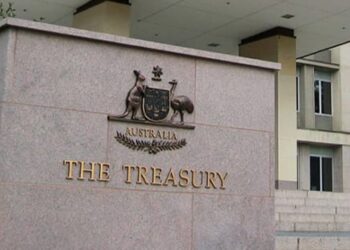In addition to proposing a new statutory best interests duty, independent chair of the Quality of Advice Review (QAR) Michelle Levy has backed the imposition of a separate “good advice duty” under recommendation four of her final report.
This new obligation, which would be enshrined in the Corporations Act, would apply to all providers of personal advice to retail clients.
Ms Levy addressed concerns that a prospective good advice duty would lower the quality of advice, due to misinterpretations of the “good” standard.
“A duty to give good advice is not, and is not intended to be a duty to give ‘okay’ advice or ‘good enough’ advice,” she said.
“I think most people would agree that ‘okay’ and ‘good enough’ do not reach the level of ‘good’.”
“Nevertheless, I understand that knowing what is good in a particular case might be difficult and so I do accept there is a need for a definition of good advice.”
As for what constitutes “good advice”, Ms Levy has defined the practice as personal advice that is, at the time it is provided is “fit for purpose”, having regard to:
- whether the service is a response to a request, question or inquiry from the client;
- the purpose of the client that the provider is aware of or should reasonably be aware of; or whether the advice is volunteered;
- the scope, content, and nature of the advice; and
- the likely relevant circumstances of the client.
The prospective duty would apply specifically to financial advisers, but in all other cases, would apply to Australian Financial Services licence holders.
“In my view, the law should be clear and direct and say what it means: it should impose a duty on a person who provides personal advice to give good advice,” Ms Levy said.
“An obligation to provide good advice would be a simpler and more direct approach to regulating advice. It will provide a plain statement of what is required by all personal advice providers and there is no reason why a product issuer (bank, insurer or superannuation fund trustee), digital adviser, and financial adviser cannot all give good advice.
“What is good will turn on the circumstances — on what the client wants and needs, on the client’s relevant circumstances and the circumstances in which the advice is given.”
Ms Levy went on to stress that compliance with a good advice duty would not be dependent on achieving the intended outcome of the advice provided to a client.
“The adviser would not be asked to guarantee an outcome,” she added.
“Instead, the law would require the provider of the advice to consider, at the time they provide the advice, whether the advice is sound, fit for purpose and good.
“That would be measured objectively.”
The introduction of a “good advice duty” would be supported by a new statutory best interests duty, applying only to financial advisers.
In light of a perceived lack of clarity regarding existing best interests duty obligations, Ms Levy has recommended introducing a “true fiduciary duty”, which “reflects the general law and will not include a safe harbour”.
This new obligation, which would “apply only to financial advisers”, would aim to ensure they are “motivated solely by the interests of their clients when providing advice”.
The Albanese government is yet to issue a formal response to Ms Levy’s final report, but has indicated it would launch further consultation before handing down a decision.




But when it all comes down to it, the advisers will still have to meet the best interests duty (just a different one) and the banks/super funds/fund managers will not.
At the start of the whole “simplification” process didn’t the lawyers say the the Corporations Act in regards to providing advice was too long and complex and was the result of continual additions to the Act by respective governments. So is it correct that Ms Levy’s solution to this adding another unclear duty which her fellow lawyers will interpret differently and ensure paperwork and compliance remains the focus rather than advice clients?